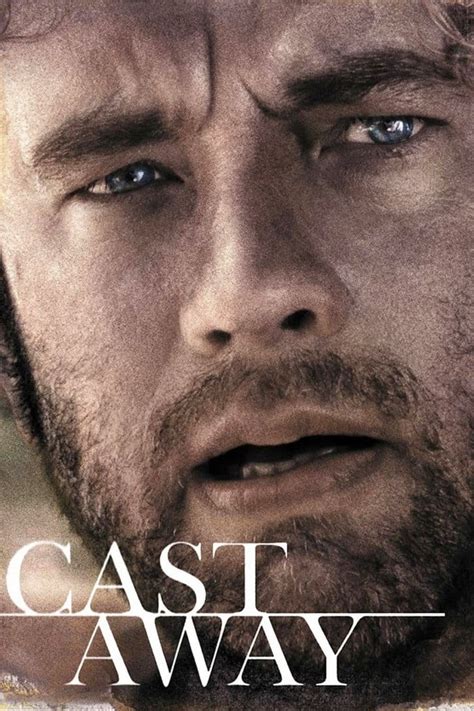Cast Away

Description:
Cast Away is a survival drama film starring Tom Hanks as Chuck Noland, a FedEx executive who becomes stranded on an uninhabited island after his plane crashes in the South Pacific. Struggling to survive, Chuck learns to adapt to his new environment, battling isolation and the forces of nature. The film explores themes of resilience, hope, and the human spirit as Chuck's determination to return to civilization keeps him going against all odds.Keywords:
Survival, Isolation, Resilience, Self Discovery, Hope, Self SufficiencyWas Cast Away based on a true story?
"Cast Away," starring Tom Hanks, is not directly based on a true story, but it draws inspiration from various real-life accounts of survival and isolation. The screenplay, written by William Broyles Jr. and directed by Robert Zemeckis, follows a FedEx executive who becomes stranded on a deserted island after a plane crash. While the specific events are fictional, themes of survival, resilience, and the human spirit resonate with true survival stories. The film's portrayal of isolation and personal transformation reflects universal human experiences.
How long did Tom Hanks live on the island in Cast Away?
In the movie "Cast Away," Tom Hanks' character, Chuck Noland, is stranded on the island for approximately four years. During this time, he faces numerous challenges as he learns to survive alone, ultimately transforming his perspective on life and relationships. The film explores themes of isolation, resilience, and the human spirit's will to endure.
What was the famous line from Cast Away?
In the movie "Cast Away," the famous line is "Wilson!" This is the name of the volleyball that the protagonist, Chuck Noland, played by Tom Hanks, befriends after being stranded on a deserted island. The line reflects Chuck's emotional bond with Wilson, symbolizing his loneliness and struggle for connection during his isolation. The moment is pivotal and highlights the theme of survival and the human need for companionship.
What was in the unopened box in Cast Away?
In "Cast Away," the unopened box is a FedEx package that protagonist Chuck Noland, played by Tom Hanks, finds on the deserted island. Throughout the film, he contemplates opening it, but he ultimately decides against it, believing it represents hope and a connection to civilization. At the end of the movie, the box is revealed to contain a waterproof, solar-powered satellite phone charger, symbolizing the importance of hope and the unknown possibilities that exist beyond his isolation.
Explore More Categories:
Mobsters Racism Defection Quirky Humor Exploration Australian Outback Existential Existential Dread Rivalry Retirement Italian Cinema Subculture India Genetic Engineering Music Documentary Reality Post Apocalyptic Werewolves Memory Integration Impersonation Aerial Wilderness Animal Agriculture Nuclear